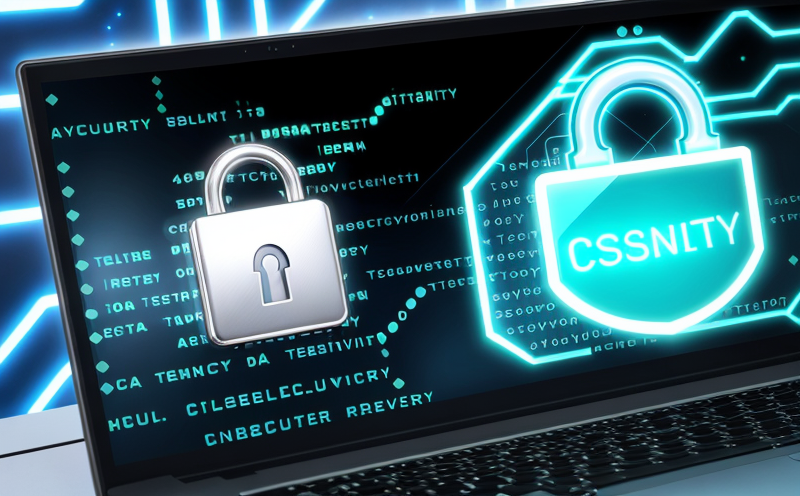ISO/IEC 27036 Supplier Security Assurance in Smart IoT Ecosystems
The ISO/IEC 27036 standard provides a framework for assessing the security of suppliers and their products within complex ecosystems, particularly focusing on the integration of smart home and Internet of Things (IoT) devices. This service ensures that suppliers meet stringent cybersecurity and data privacy requirements, thereby protecting both the ecosystem itself and its end users.
The standard is crucial in today's interconnected world where breaches can have far-reaching consequences. By adhering to ISO/IEC 27036, organizations not only comply with international standards but also enhance their reputation as a trustworthy and reliable partner in the IoT ecosystem. The testing process involves a comprehensive evaluation of supplier security controls, including access management, data protection, network security, and incident response.
Supplier security assurance is vital for maintaining trust within smart IoT ecosystems. Consumers expect vendors to protect their personal data and ensure that devices are free from vulnerabilities. By implementing ISO/IEC 27036, suppliers can demonstrate a proactive approach to cybersecurity, which is increasingly becoming a key differentiator in the market.
The testing process typically involves several stages: initial assessment of supplier controls, vulnerability scanning, penetration testing, and finally, gap analysis against best practices. This multi-layered approach ensures that potential weaknesses are identified early, allowing for timely mitigation before they can be exploited by malicious actors.
One key aspect of ISO/IEC 27036 is the emphasis on continuous improvement. Suppliers must demonstrate a commitment to updating their security measures as new threats emerge and technologies evolve. This ongoing process ensures that even after initial certification, suppliers remain vigilant about maintaining robust cybersecurity practices.
The standard's focus on supplier security also extends beyond mere compliance; it promotes a culture of security awareness throughout the organization. By integrating ISO/IEC 27036 into their operations, companies foster an environment where all employees understand the importance of protecting sensitive information and preventing unauthorized access to systems.
Implementing this standard can lead to significant benefits for both suppliers and end users. For suppliers, it opens doors to new markets and partnerships by demonstrating a commitment to high security standards. End users gain peace of mind knowing that their devices have been rigorously tested against industry best practices. Additionally, compliance with ISO/IEC 27036 can help organizations avoid costly legal penalties associated with data breaches or non-compliance with regulatory requirements.
In summary, ISO/IEC 27036 Supplier Security Assurance is essential for maintaining the integrity and security of smart IoT ecosystems. By adhering to this standard, suppliers not only protect themselves but also contribute to a safer digital environment for all stakeholders involved in these interconnected systems.
Why It Matters
Ensuring the security and privacy of data within smart IoT ecosystems is critical given the increasing number of connected devices that collect sensitive information. Cyberattacks targeting these ecosystems can result in significant financial losses, reputational damage, and potential harm to end users.
- Data Breaches: Unauthorized access to personal data stored on smart home or IoT devices poses a severe risk to individual privacy.
- Financial Losses: Companies may face substantial costs related to remediation efforts, legal fees, and lost business due to security incidents involving their products.
- Regulatory Compliance: Failure to comply with relevant regulations can lead to hefty fines and operational disruptions for non-compliant entities.
By adhering to ISO/IEC 27036, suppliers demonstrate a proactive stance towards preventing such incidents. This not only enhances their standing within the industry but also fosters greater trust among consumers who rely on these devices for everyday tasks and safety measures.
Quality and Reliability Assurance
The testing process under ISO/IEC 27036 involves a rigorous evaluation of various aspects critical to maintaining secure and reliable smart IoT ecosystems. This includes assessing the supplier's ability to manage access rights effectively, ensuring that only authorized personnel have access to sensitive information stored on devices.
- Vulnerability Scanning: Identifying potential weaknesses in software and hardware components before they can be exploited by attackers.
- Penetration Testing: Simulating real-world attack scenarios to evaluate the effectiveness of current security measures.
In addition to technical assessments, ISO/IEC 27036 also emphasizes the importance of organizational processes in ensuring long-term security. This encompasses areas such as incident management, disaster recovery planning, and regular audits conducted by independent third parties.
Supplier security assurance is not just about detecting issues; it's equally important to address them promptly and effectively. Continuous monitoring and updating of security protocols based on emerging threats are key components of this service. Suppliers who follow ISO/IEC 27036 demonstrate their dedication to providing secure products that stand the test of time.
Customer Impact and Satisfaction
Consumers today are more discerning than ever when it comes to choosing smart home and IoT devices. They expect these products not only to function well but also to be secure against unauthorized access or data breaches.
- Better User Experience: Secure devices contribute positively to the overall user experience, reducing anxiety about personal safety and privacy.
- Increased Trust: Compliance with ISO/IEC 27036 builds trust between suppliers and their customers, leading to stronger relationships based on mutual respect and shared values.
For quality managers and compliance officers within organizations, ensuring adherence to this standard helps meet customer expectations while avoiding costly mistakes. R&D engineers benefit from having clear guidelines that guide product development towards higher security standards early in the design phase.
In summary, ISO/IEC 27036 Supplier Security Assurance plays a pivotal role in enhancing both internal operations and external perceptions of suppliers. It serves as a beacon of reliability and integrity, ensuring that smart IoT ecosystems remain safe havens for all participants involved.





